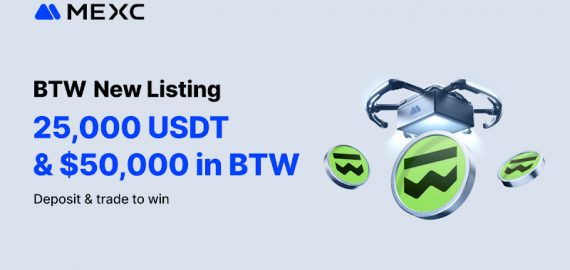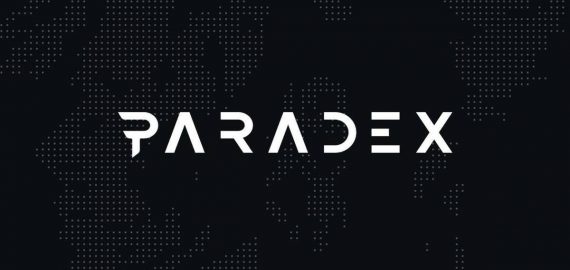AI’s Intersection with the Global Gig Economy and Sapien’s Role in Transforming the Future of Work

In Brief
AI integration and the rise of digital platforms are driving a new era of flexible gig work, exemplified by decentralized companies like Sapien that connect a global workforce to AI training tasks through accessible, blockchain-powered platforms.

From automating routine data entry tasks to augmenting creative work, AI’s presence has indelibly grown across a large number of industries. In fact, more than 75% of surveyed workers (as part of a late 2024 study) noted that they were already using AI tools as part of their jobs.
Crucially, this rise of AI has coincided with broader changes in how people work. Traditional nine-to-five employment no longer seems to be the only game in town. Over the past decade, the ‘gig economy,’ which involves short-term, freelance, or contract work facilitated by digital platforms has exploded in scale.

Last year, analysts valued this sector – encompassing everything from ride-hailing drivers to online designers – at around $557 billion. By 2032, those analysts project the market to more than triple to roughly $1.8 trillion, especially as more workers and businesses embrace flexible, on-demand work arrangements.
Simply put, what began with odd jobs and side hustles has evolved into a vast ecosystem of digital freelancing and platform-based work that millions rely on for their livelihoods. For a growing segment of the population, piecing together income from multiple gigs has become the new normal. Gig work offers a blend of flexibility and autonomy that traditional jobs often lack. The result is what commentators have dubbed the “Gig Economy 2.0,” an era where decentralized, AI-driven micro-tasks now generate entirely new forms of work..
A new archetype for workforce resourcefulness
Unlike the first wave of gig platforms, platforms that matched drivers with riders or renters with vacant rooms, the ongoing wave is aligning the human intellect with AI’s diverse needs. From labeling images to writing training data for algorithms, AI training tasks might only take seconds or minutes, but they are essential fuel for the LLMs that companies are racing to build. As a result, the market for AI data tasks has skyrocketed. Analysts forecast that the data labeling industry alone will surge from just $378 million in 2020 to over $17 billion by 2030.
Perhaps most importantly, the architects of this brand new gig economy have learned from their predecessors and are shaping Gig Economy 2.0 around accessibility and fairness. Today’s AI-focused gig platforms are leveraging the blockchain and smart algorithms to distribute work to a far-flung workforce — verifying quality, and even handling payments instantly in the process.
One company that is setting the stage for this revolution is Sapien, a “decentralized data foundry,” connecting enterprises in need of AI training data with a worldwide network of freelance contributors it calls “AI Workers.” Unlike traditional data annotation firms that operate centralized “data farms,” Sapien’s approach is radically distributed as anyone with as little as a $20 Android phone can now earn by contributing to AI on Sapien’s platform.
There is no requirement for an advanced degree, fluent English, or even a driver’s license – barriers that often exclude people from various opportunities. By stripping away these peripherals, Sapien has opened the door for a truly global workforce as skilled professionals and novices alike can log in and find micro-tasks suited to their abilities, be it categorizing images, transcribing snippets of audio, or crafting prompts for a chatbot.
Today, tasks are delivered through a mobile-friendly interface, and in the future the Sapien protocol will match workers with assignments based on their individual skills and preferences. In other words, a medical student might be served a task to label X-ray images, while a bilingual teacher might get a prompt to translate text.
A no-nonsense approach
Quality is paramount when training AI.Consequently, Sapien employs a mix of human-in-the-loop quality assurance with a decentralised staking innovation to maintain high standards at scale. By tapping a diverse, decentralized pool of contributors, AI developers can reduce biases that plague AI datasets. For instance, a medical AI trained on images labeled by doctors from five continents is less likely to reflect a narrow worldview than one labeled by a single, homogenous team.
Sapien’s model takes this principle further by using the blockchain for added transparency and incentive alignment. Every contributor’s work can be verified and their reputation recorded, helping to automatically filter out bad data or attempts at cheating.
Another aspect that sets Sapien apart from the rest of the fray is its gamified operating environment, which turns data labeling into an engaging experience, allowing contributors to earn points and badges, level up in expertise domains, and see their progress on leaderboards. There are also “missions” to keep things fresh and even limited-time events with bonus rewards for tackling special tasks.
Thanks to these unique USPs, in less than two years, Sapiens has grown from an idea to a vibrant marketplace raising $10.5 million in seed funding last year. Not only that, it has attracted backing from major crypto and tech investors with reports suggesting more than 800,000 total signees (from 110+ nations) and more than 86 million training tasks completed to date.
Knowledge is power
As AI continues to weave itself into the fabric of today’s workplace, platforms like Sapien are helping devise a new social ecosystem, one where human insight is in demand on a gig-by-gig basis. And, while it’s still early days, the model being championed by the firm could present a compelling answer to some of the challenges being posed by global automation, hinting at a future of work where opportunity is more evenly distributed.
Disclaimer
In line with the Trust Project guidelines, please note that the information provided on this page is not intended to be and should not be interpreted as legal, tax, investment, financial, or any other form of advice. It is important to only invest what you can afford to lose and to seek independent financial advice if you have any doubts. For further information, we suggest referring to the terms and conditions as well as the help and support pages provided by the issuer or advertiser. MetaversePost is committed to accurate, unbiased reporting, but market conditions are subject to change without notice.
About The Author
Gregory, a digital nomad hailing from Poland, is not only a financial analyst but also a valuable contributor to various online magazines. With a wealth of experience in the financial industry, his insights and expertise have earned him recognition in numerous publications. Utilising his spare time effectively, Gregory is currently dedicated to writing a book about cryptocurrency and blockchain.
More articles

Gregory, a digital nomad hailing from Poland, is not only a financial analyst but also a valuable contributor to various online magazines. With a wealth of experience in the financial industry, his insights and expertise have earned him recognition in numerous publications. Utilising his spare time effectively, Gregory is currently dedicated to writing a book about cryptocurrency and blockchain.


















































